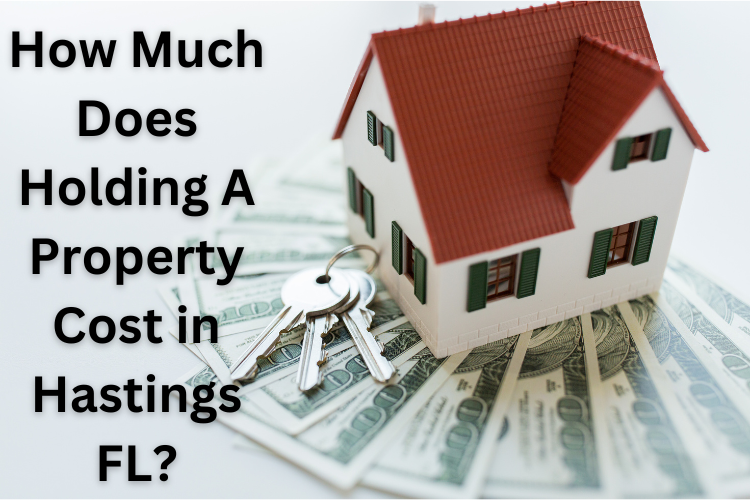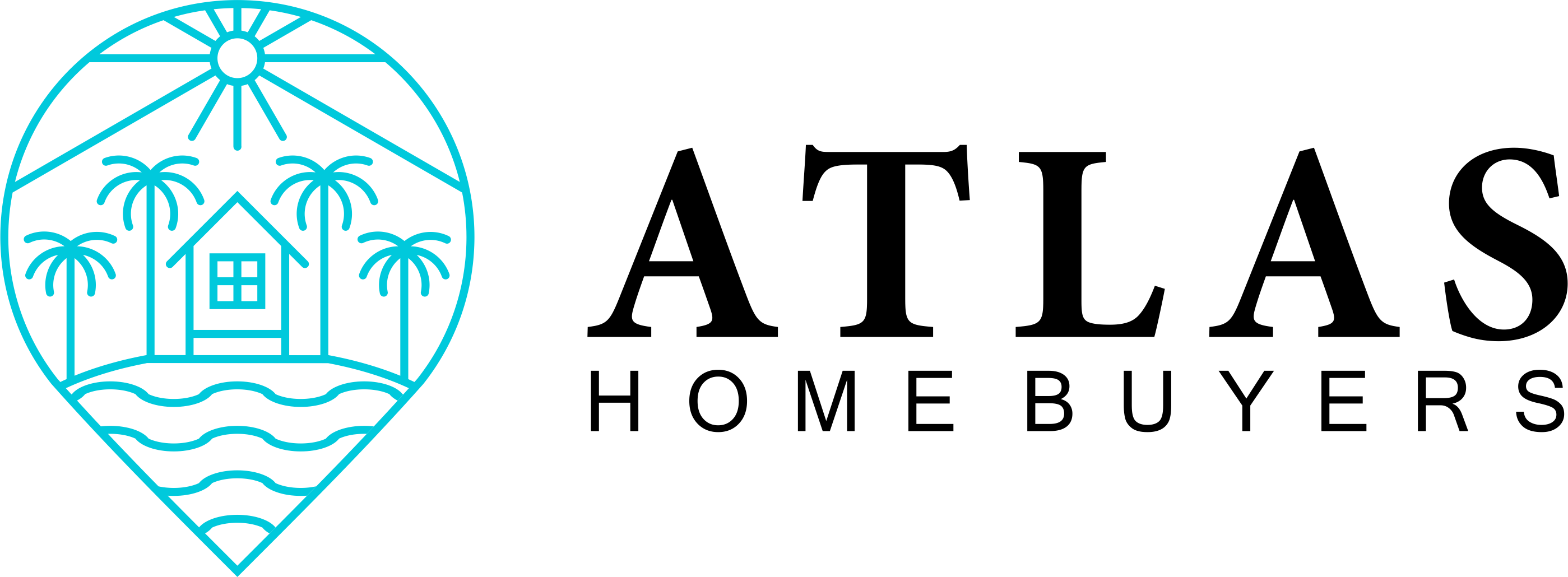How Much Does Holding A Property Cost in Hastings FL?

Analysis of the User’s State of Mind
When considering the costs associated with holding a property in Hastings, FL, you’re likely experiencing a blend of curiosity and concern. Whether you currently own an investment property, are contemplating a purchase, or are in the midst of a renovation, understanding the financial implications of property ownership is critical for making informed decisions. You may be worried about hidden expenses like maintenance, taxes, and insurance that can quickly add up over time. Furthermore, you might seek clarity regarding how these costs can affect your overall investment strategy and potential profit. This blog will illuminate the specific costs of holding a property in Hastings, helping you navigate these decisions with confidence.
How Much Does Holding a Property Cost in Hastings, FL?
Holding a property in Hastings, FL, can entail various ongoing costs that impact your finances and overall investment strategy. Understanding these costs is essential for effective property management and can help you make informed decisions about whether to keep, renovate, or sell your property. Let’s explore the primary expenses associated with property ownership.
Property Taxes: A Significant Ongoing Expense
One of the most predictable costs related to holding property is property taxes. In Hastings, property tax rates typically hover around 1.1% of the assessed value of your property. For instance, if your property is valued at $250,000, you would likely expect to pay approximately $2,750 annually in property taxes.
It’s important to note that property tax rates can fluctuate over time due to changes in local government budgets or the assessed value of the property. Additionally, specific exemptions, such as homestead exemptions for primary residences, could reduce your tax burden, but investment properties may not qualify. Being aware of the tax implications is fundamental for budgeting your holding costs appropriately.
To further understand the details surrounding property taxes and how they might impact your investment, please refer to our Pillar Page on Understanding Property Taxes in Florida.
Insurance Costs: Protecting Your Investment
Another crucial cost to factor in when holding a property is insurance. Homeowners insurance rates in Hastings generally average between $1,000 and $1,500 per year, depending on various factors including property location, condition, and coverage options.
If you own rental properties, you may also need additional coverage, such as landlord insurance, which can help protect against loss of rental income or damages incurred by tenants. This specialized insurance can raise your overall insurance costs to $2,000 or more annually.
Assessing your insurance needs thoroughly and seeking quotes from different providers can help you secure the best rate while ensuring you have adequate coverage to protect your investment.
Maintenance and Repairs: Budgeting for Upkeep
The ongoing maintenance and repair costs associated with holding real estate can often be underestimated. On average, homeowners and property investors typically allocate about 1% of the home’s value annually for upkeep. This includes preventive maintenance, repairs, and general property improvements.
For a property valued at $250,000, this could mean budgeting approximately $2,500 per year for regular maintenance tasks. These tasks can range from seasonal HVAC servicing and lawn care to occasional larger repairs like roof replacements or plumbing issues.
Additionally, if you own rental properties, you may face unexpected expenses related to tenant turnover or damage. Being proactive about maintenance can help reduce these costs in the long run, but it is wise to have a financial cushion for emergencies.
Utilities: Essential Services Costs
When you own a rental property, utility costs can represent a substantial holding expense. Depending on your rental agreements, you may be responsible for covering utilities, such as water, electricity, gas, and trash collection. In Hastings, average utility costs for a single-family home can range from $250 to $400 per month, leading to expenses totaling $3,000 to $4,800 annually.
If you are renting out the property, it is common practice to transfer these utility costs to tenants in your rental agreement, which can significantly lighten your financial load as a property owner. However, if the property remains vacant for any extended period, these costs must still be factored into your holding expenses.
Homeowners Association (HOA) Fees: Additional Financial Obligations
If your property is part of a homeowners association, you will likely encounter monthly or annual HOA fees. These fees can cover amenities, landscaping, maintenance of common areas, and other community expenses. In Hastings, HOA fees can average from $100 to $300 per month, depending on the services rendered by the association.
These fees can be a significant portion of your monthly expenses, so it’s crucial to factor them into your budget. Additionally, existing or potential assessments beyond standard fees, imposed by the HOA for special projects, should also be taken into account.
Opportunity Costs: The Value of Potential Profit
While not a direct out-of-pocket expense, opportunity costs can factor heavily into the equation when holding property. When money is tied up in a property (especially one that is not appreciating at a rate matching or exceeding alternative investments), you miss out on potential returns from other financial opportunities.
For example, if you have $250,000 invested in a property, the opportunity cost could be the returns you could generate by investing that amount in stocks or mutual funds, which historically can yield a return of around 7-10% annually. Assuming a conservative 7% return from an alternative investment, you would be missing out on about $17,500 each year just by holding onto that property without achieving any gains from it.
When considering the holding costs, it’s essential to assess the potential of your asset versus opportunities available elsewhere. This analysis can help inform your decision on whether to maintain your property, invest further, or possibly sell it to reinvest your capital more effectively.
Interest Payments: Costs of Financing Your Investment
If you’ve financed your property with a mortgage, interest payments can significantly contribute to your monthly costs. Depending on your loan terms, interest rates, and the remaining balance on your mortgage, these payments can add up over time. For instance, if you have a $200,000 mortgage at a 4% interest rate, you might pay around $800 in interest in the first month alone. Over time, as you pay down the principal, this amount will decrease, but it can still represent tens of thousands of dollars over the life of the loan.
Interest payments are especially important to consider for properties that aren’t generating income, such as a second home or a property awaiting renovation or sale. On the other hand, if you have a rental property generating monthly income, this might offset some of those costs, so tracking and managing your cash flow is vital.
Seasonal Variability: Costs That Change with the Seasons
In Hastings, Florida, seasonal changes can affect property holding costs, particularly regarding utilities and maintenance. For example, summer months may lead to higher electricity bills due to air conditioning usage, while winter months might require additional maintenance—like inspecting heating systems or preparing your property for potential cold snaps.
You should budget accordingly for both summer and winter seasons, as fluctuations in utility costs can impact your overall holding expenses. Additionally, seasonal repairs—like roof inspections after heavy rain or gutter cleaning—will need to be incorporated into your annual plans.
The Impact of Market Conditions: Evaluating Your Holding Strategy
Market conditions significantly influence the financial aspects of holding property in Hastings. When the housing market is thriving, the value of your property may appreciate, making holding costs more palatable. Conversely, in a sluggish market, you may find it more challenging to sell the property at a desirable price, making the costs of holding it feel more burdensome.
Understanding these local market conditions and trends can help you make better decisions about your investment. Engaging with real estate professionals and staying informed about local sales activity can equip you with the knowledge needed to adapt your strategy accordingly.
Conclusion: Balancing Costs and Investment Strategy
In summary, holding a property in Hastings, FL, comes with a broad range of ongoing costs that you need to understand to make informed choices about your investment. From property taxes and insurance to maintenance, utilities, HOA fees, and opportunity costs, these expenses can accumulate quickly.
As you evaluate your options, consider how these costs align with your overall investment strategy. If your property is not providing sufficient financial returns or impacting your cash flow, it might be wise to explore alternatives, such as selling or redeveloping the asset.
When facing the complexities of property ownership, remember that engaging with real estate professionals can provide valuable insights and support. Additionally, if the responsibilities of managing a property feel overwhelming, you may want to explore selling for cash, which could alleviate many burdens linked to holding expenses and provide you with greater peace of mind.
For those considering selling their property, understanding the closing costs associated with the sale is also critical. If you’d like to learn more about what these costs entail, explore our Pillar Page on What are Closing Costs Exactly in North East Florida?.
